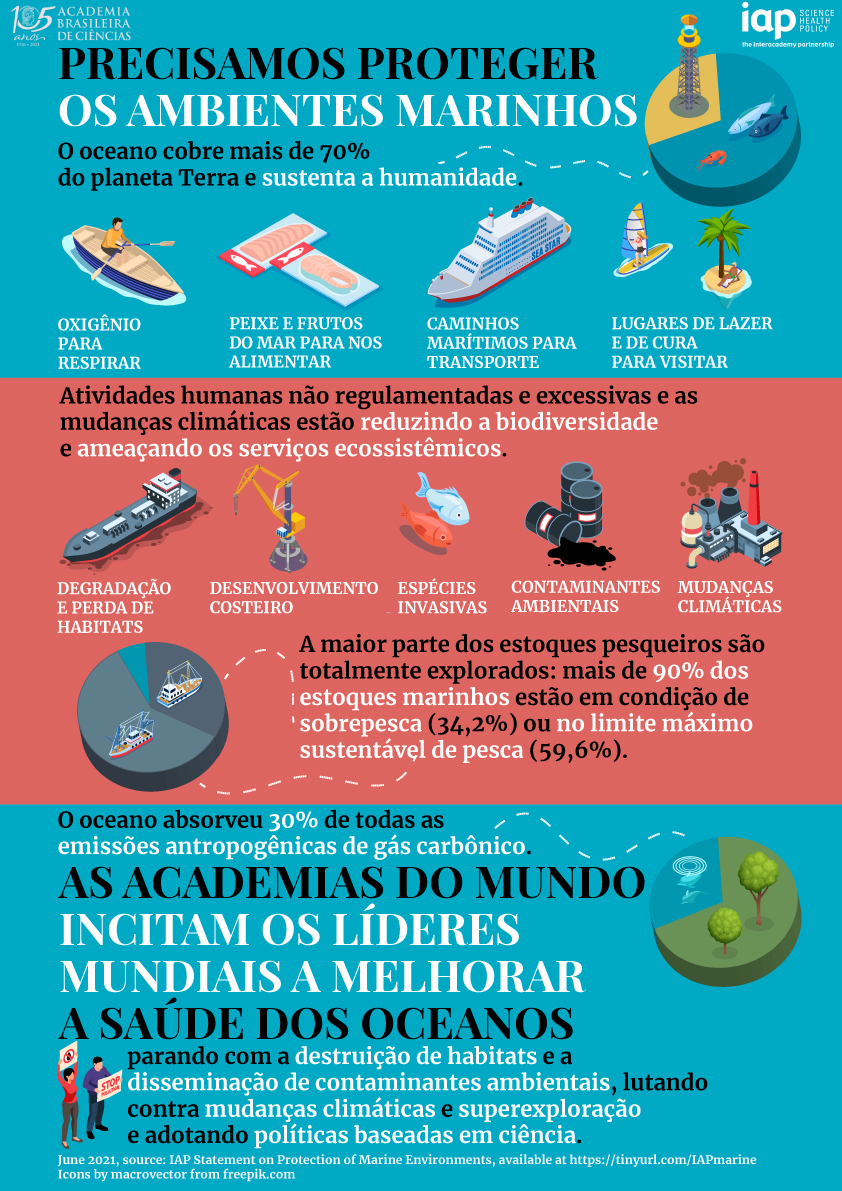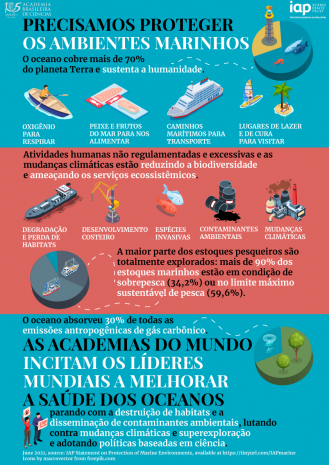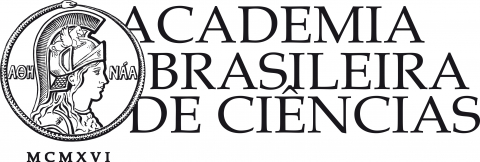The ocean, connected to 71% of the Earth's surface, makes human life on the planet possible. The well-being of the Earth's population and its economy benefit from the ocean through oxygen for breathing, fish and seafood for food, places of rest and leisure to visit, sea routes for transportation and opening up possibilities for various professional activities.
However, excessive and unregulated human activities and recent climate change are causing the marine environment to deteriorate, reducing biodiversity and threatening ecosystem services. According to Academician Luiz Drude de Lacerda, professor at the Federal University of Ceará (UFC) and coordinator of the ABC Working Group on Oceans, "the ocean is facing a critical moment, on the threshold of a change with irreversible impacts on its functioning and affecting the well-being of more than 70% of humanity. The recognition of this unique moment in the planet's history and the role of science in addressing it has led to the mobilization of different international organizations, culminating in the launch of the Decade of Ocean Science by the UN."

The InterAcademy Partnership (IAP) has launched in May 2021 a Declaration on the Protection of Marine Environments, endorsed by the Brazilian Academy of Sciences (ABC) and the majority of the 143 national Academies that were part of the partnership in 2021.
The Declaration reports that most fish stocks are fully exploited: more than 90% of marine stocks are either overfished (34.2%) or at the maximum sustainable fishing limit (59.6%). The ocean has absorbed 30% of all anthropogenic carbon dioxide emissions. In the document, the World Academies urge world leaders to improve ocean health by stopping habitat destruction and the spread of environmental contaminants, fighting climate change and overexploitation, and adopting science-based policies.
Luiz Drude de Lacerda was a member of the Working Group responsible for drafting it. "Participating in this IAP group puts ABC at the forefront of ocean science and, above all, allows us to bring a vision of what is being done in Brazil and its contribution. The ocean is global and it is impossible to make progress in this area of science without the necessary interdisciplinarity and international cooperation," said Drude.
Drude highlighted the fundamental role played by the Academies of Sciences in the process. "They took the issue to the G20 in 2019, securing the support of the richest nations; they promote different actions, such as the recent IAP Declaration, endorsements of Decade activities in their respective regions and the production of studies and organization of events in the field of ocean science."
The declaration can be accessed here.
See also the UN website on Oceans Day here.
This content was originally published by the Brazilian Academy of Sciences (ABC) in Portuguese here.
The content on this website is licensed under a Creative Commons Attribution-NonCommercial-ShareAlike 4.0 International License.


